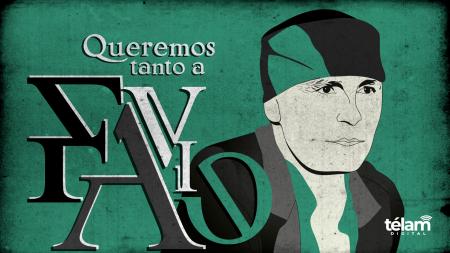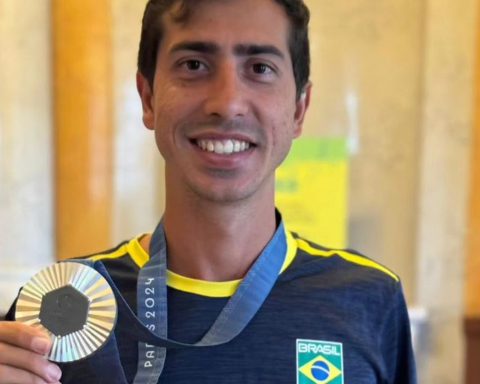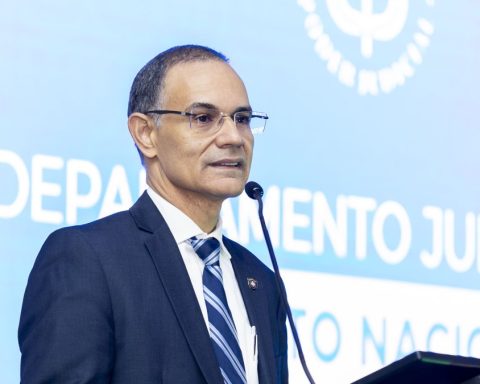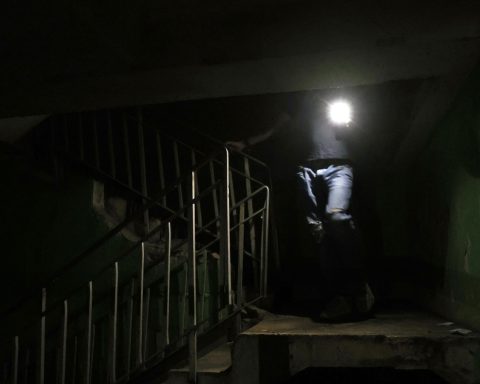On the 5th of November 10 years after the death of Leonard FavioTélam digital prepared “We love Favio so much”, a fictional reminder in three parts that reviews the main instances of his life.
The radio drama, the format chosen in this case to trace the trajectory of one of the most popular Argentine artists of the 20th century, deals with his family origins in Mendoza, his beginnings as an actor, his passion for film and music and his political commitment to Peronism: the same one that forced him to go into exile, but did not prevent him from continuing to produce and evoke what mobilized him as a creator with a social conscience.
Favio, who in turn crossed the border of his national origin and transcended –through his work– to the Spanish-speaking world, represented Argentina with an emotional power that this proposal –in charge of Marcelo Camanodirector and screenwriter of the project– puts in value.
The recordings ended a week ago on the floor of Télam Radio, with a cast led by Stephen Perez like Leonard, Gustavo Luppi as Leopoldo Torre Nilson, Monica Santibanez like his mother, Gaby Ferrero like her aunt Elcira Olivera Garcés, Mariano Flax like Edgardo Nieves and Alexander Ojeda like his brother Zuhair among other actors and actresses. “We love Favio so much” will be available on the Télam website and on Spotify.
“Despite being simple, his songs were catchy, authentic, beautiful. And mind you, he was heavily criticized, but the guy had a stamp; he was unique… Even though he did it because he needed money to finance his movies, he was tremendously authentic, and That’s why it was a boom.”Marcelo Camano
Télam spoke with Camaño – who was already in charge of the radio production “Eve: The Rainbow Journey” issued by this agency in reference to Eva Perón’s tour in Europe– and members of the cast.
About the structure, Camaño reveals to us “The first part, which is personal, basically has to do with memories, with nooks and crannies of his rather eventful childhood in a state boarding school. The second instance is focused on his experience as a film director, and the third with the musical aspect and his political participation in ’73”.
-Marcelo, before that year Favio had a very early approach to Peronism, is that right?
-Yes, he had him as a recipient of the Peronist social policy; when he was a boarding school student, at the time when Perón was president, Evita distributed gifts to the boys in schools of those characteristics. The historical detail is not minor, because among those gifts whose options were a ball, a car or a book, he chose a book. A children’s book, of course, entitled “Button Toulon” that he, moreover, would keep throughout his life.
-And how did you get to the role of actor?
-Favio liked to say that he was not an actor, but that acting had been a job for him. This is interesting because his mother was the author, precisely, of radio dramas. And his aunt, Elcira Olivera Garcés, a renowned actress who got him the first roles. From that, he is interested in the direction, although he also announces it a little to get up with María Vaner, with whom he will end up being a couple. Key to his formation as a director is the intervention of Leopoldo Torre Nilson, who takes him on as a kind of godson and with whom he becomes a close friend. In those days he writes his first short. Later, already with his brother, they launch themselves into directing and make the emblematic “Chronicle of a lonely child”.

“A total artist, more than a film director”
Mónica Santibáñez, who for her part will assume the role of Laura, Favio’s mother, tells us that she was always a great admirer of Favio’s cinema, because “it really has our imprint, local. She does not hesitate to describe him as “the best Argentine director” of all time and “a total artist, an intuitive”.
-Mónica, do you remember your first contact with your production?
-Of course, I remember it in black and white cinema, I was quite young. Later, as a director, it had a huge impact on me. With those imposing soundtracks… everything was epic, moving, they were symphonies… you were in the seat of the cinema and you felt that you were rising. He directed everything in a symphonic way.
-And as a singer? How do you analyze it?
-I used to like that very much; It was different. Despite being simple, his songs were captivating, authentic, beautiful. And notice that he was heavily criticized, but the guy had an imprint; he was unique… Even though he did it because he needed money to finance his movies, it was tremendously authentic, and that’s why it was a boom. Of course, I also find it interesting that as an artist he has played politically. For me, he was the greatest.
?️? “We love Favio so much”, Télam’s radio drama about the artist’s life and work
A special production, for the 10 years since the death of Leonardo Favio, which reviews the most important moments of his career
▶️ Premiere: November 4 at https://t.co/Uui0LVqGGq pic.twitter.com/tO2WkPnkZU
—Telam Agency (@TelamAgency) October 21, 2022
“He spoke to his audience through art in a very poetic way”
Esteban Pérez, the youngest of the cast, born in 1976, embodies nothing less than the role of Favio himself. He remembers that the first thing he saw of his work was the documentary “Perón, sinfonia del sentiment”.
-Esteban, in what context did you see that almost six-hour documentary?
-My old man showed it to me, who was a Peronist and a great follower of Favio. Due to a generational issue I did not have the fortune to see his work before and even less to participate in it. In fact, I saw the rest of his films after seeing the documentary.
-From your perspective as a relatively young actor, how would you define the character you are going to embody?
-As a very complete artist, innovator of the history of national cinema. Especially after reading these sixty pages of booklet that we have studied about Favio’s history, where there is a brushstroke of each stage of his life, for me it is a pleasure to recover and honor one of the most important artists that Argentina has.
-As for acting, you have a challenge. Does it also involve timbre issues related to your very particular voice?
-What we talked about with Marcelo (Camaño) is not to emulate so much what has to do with his timbre, the idea is not to do an imitation. I will try to give you the emotion of what Marce wrote, of what is in the book, which is very moving. Basically, I am very happy with the opportunity to immerse myself for a little while in the life of an artist who has this dimension; I think that, without exaggeration, he is one of the creators most committed to the political and social causes of his time. Someone who spoke to the public about him through art in a very poetic way.


















